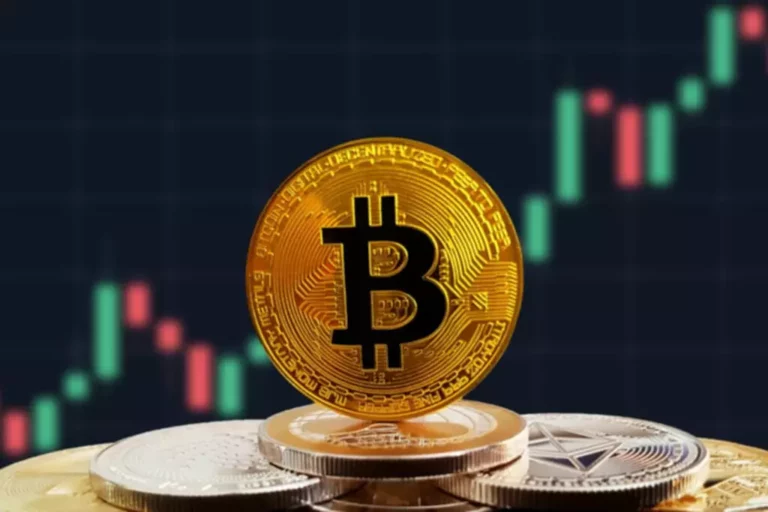Content
While investing offers long-term growth and stability, trading provides opportunities for immediate profits and quick decision-making. Understanding one’s risk tolerance and time commitment is crucial in determining the most suitable approach. When it comes to financial markets, trading is a practice that involves the buying and selling of financial instruments, such as stocks, currencies, commodities, or derivatives. Trading provides opportunities for investors and speculators to profit from price movements in these instruments. This article highlights the differences between trading and investing and explains that both can trading and investing difference be used together or separately. Trading is taking short-term positions with the goal of profiting from short-term price fluctuations.
Mastering Trading Strategies: Your Ultimate Guide to Successful Trading
Any time you can fashion a more stable alpha, you will be able to experience a higher return on your investment. There is a general belief that you must own stocks, rather than an ETF, to beat https://www.xcritical.com/ the market. A stock is an ownership stake in a company, and it rises and falls over time depending on the profitability of the business. In contrast, an option is a side bet among traders over what price a stock will be worth by a certain time. Sometimes it’s lower, sometimes it’s much higher, but you have to stay invested to reap the rewards.

What Are the Key Differences Between Investing and Trading?
In other words, they Cryptocurrency wallet effectively force the government to give them an interest-free loan by deferring their taxes, and they continue to compound on the full, pre-tax amount. While active investing seems like it would be the consistent winner, research shows that passive investing tends to win the majority of the time. A 2024 study from S&P 500 Dow Jones Indices shows that 93 percent of fund managers investing in large firms didn’t beat their benchmark index over the previous 20 years.
Which one is better, trading or investing?
In contrast, investors are playing a positive sum game, where more than one person can win. These are pros who have experience, knowledge and computing power to help them excel in a market dominated by turbocharged trading algorithms that have well-tested methodologies. That leaves very few crumbs for individual traders without all those advantages. Dayana Yochim is a former Senior Writer/Editor at Reink Media Group who has written about personal finance and investing for more than 20 years. Her work has appeared in outlets including HerMoney.com, NerdWallet and the Motley Fool, and has been syndicated nationally. Dayana has also been a guest expert on “Today” and Good Morning America.
ETFs can be an even better choice than individual stocks
We believe everyone should be able to make financial decisions with confidence. Compounding, where the value of investments grows not just on the initial principal but also on accumulated earnings, is a great reward. Additionally, investments like dividend-paying stocks or interest-bearing bonds offer a stream of passive income, and this contributes to the appeal of a more hands-off yet purposeful approach. This emphasis on rationality and long-term goals helps investors ensure that emotions do not get in the way of stable and sustainable wealth accumulation.
It’s a method of accumulating wealth over time through the strategic selection of stocks. And while the broader stock market has recovered, not all company stocks have. Buying individual stocks, like many traders do, raises the risk that you could lose the money you invest. Diversified funds, meanwhile, spread your money across hundreds of companies. This helps smooth out any dips individual companies may experience by supplementing their performance with other companies’ stronger returns.
It is recommended to consult a tax professional or financial advisor to determine the correct tax treatment of your investments. Traders frequently engage in buying and selling assets quickly to take advantage of market changes, exposing them to increased risk because of leverage. Trading is often driven by immediate emotions such as fear, greed and the desire for quick profits, as traders are exposed to rapid market changes and the pressure to make timely decisions. The short-term nature of trading can intensify emotional reactions to market volatility, leading to impulsive actions.
- On the other hand, if the FDA approves the drug, investors in the company can be highly rewarded.
- Sectors that have a narrow dispersion of returns from the mean do not offer stock pickers an advantage when trying to generate market-beating returns.
- Investing is taking a long-term position to benefit from the growth or price appreciation of an asset.
- This steady, enduring perspective enables investors to capitalise on the power of compounding and benefit from the overall growth of the economy or the companies in which they invest.
- Sticking to a single approach may restrict your portfolio’s potential and heighten your exposure to risks.
- In this article, we will explain the main differences between investing vs trading, and help you decide which strategy fits you best based on your personality, risk tolerance, time horizon, and capital.
This means someone who wants to take on additional risk/reward for each incremental price movement can do so by buying a “3X bull” ETF for example. If you’re getting started investing, you might wonder whether it’s better to invest in stocks or ETFs. Stocks can be a great investment in some circumstances, while ETFs can be better in others. But for new investors, exchange-traded funds solve many problems, and they’re an easy way to earn attractive returns — so they’re a great starting point. The biggest difference between stock trading and investing is that traders invest for the short-term, whereas investors hold onto assets for the long-term. Both are styles of investing, and oftentimes, the two terms are used interchangeably.

Traders may receive dividends if they own a dividend-paying stock on the day before the ex-dividend date. Trading involves short-term transactions, usually lasting minutes, days, weeks, or months. Traders may think that they’re being crafty by ducking and dodging, but they often miss the market’s biggest days because they’re out of the market or only partially invested.
The biotechnology industry is a good example, as many of these companies depend on the successful development and sale of a new drug. If the development of the new drug does not meet expectations in the series of trials (or the Food and Drug Administration (FDA) does not approve the drug application) the company faces a bleak future. On the other hand, if the FDA approves the drug, investors in the company can be highly rewarded. In fact, buying an S&P 500 index fund is what legendary investor Warren Buffett recommends for most investors. We reviewed providers to find the best online platforms for day trading.
In contrast, investing generally requires relatively less involvement and attention on a day-to-day basis. Conversely, investing adopts a more measured and patient approach, which tends to be less risky in comparison. Due to its short-term nature, trading is generally perceived to be a riskier endeavour in the financial landscape. Traders are often quick to seize opportunities in real time and mitigate risks swiftly. On the contrary, investing entails a patient and steadfast approach, with a long-term approach that may span years or even decades.
Trading involves buying and selling securities within small time frames, usually ranging from seconds to weeks. Trading is more speculative than investing and involves the implementation of short-term strategies. You create a tax liability every time you realize profits on an asset sale. So traders who bounce in and out of the market are realizing profits (or losses) all the time. That reduces their ability to compound gains, because they have to cut the IRS in for a slice of every gain they realize.
A stock has an indefinite life and can continue to exist as long as a company exists. The first step towards success is choosing the right forex and CFD trading platform. The wide range of pro-level trading tools on markets.com will prime you for potential success. Patience, a long-term perspective, and an understanding of the power of compounding are essential attributes of a successful investor. The ability to manage risks effectively is crucial in a fast-paced environment, where a wrong move could result in significant losses. In trading, emotions play a substantial role, often leading to impulsive actions and potential losses.

Trading typically carries elevated risk levels because of its short-term approach. Traders face market volatility and abrupt price shifts, leading to significant gains or losses, necessitating a greater risk tolerance and prompt decision-making skills. Investors have a much longer time horizon than traders and are usually more risk-averse.
